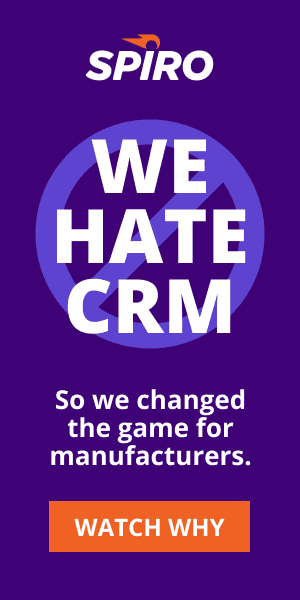8 Simple Tips for Salespeople That’ll Make Customers Open Up to You
If you’ve read enough of our articles, or lots of other articles about sales, then you know that listening is one of the most important skills that a salesperson can have. Listening allows the prospect to talk about their needs and reveal a path to win their business.
(And another important skill is following up with the right prospect at the right time. Trying using an AI-Powered CRM, like Spiro, to help you achieve this goal!)
But listening doesn’t come easy for everyone, and getting the customer to open up and talk can itself be a challenge.
Here some tips to help customers open up and start talking, and to help you listen and find out how to close their deals:
1. Make sure to ask open-ended questions
Yes or no questions won’t really get people to open up and will make you appear like an order-taker rather than as a consultant. To get to the heart of any matter, you’ll need to dig deeper and ask open-ended questions that allow the customer to provide a comprehensive explanation. It’s the difference between asking “What’s the problem you currently have?”and “Why do you think you currently have a problem?”
2. Be an active listener
Active listening is important because it shows the customer that you’re engaged and paying attention. In today’s fast-paced world, this will go far in building trust, and setting yourself apart from everyone else. Active listening involves paying close attention, nodding your head or another physical gesture showing that you are listening, occasionally vocalizing agreement or sympathy (“oh wow!”, “Really?”, “Yes.”), and provide occasional feedback when necessary.
3. Ask follow-up questions frequently
When someone is speaking, make sure to ask relevant follow-up questions. In sales, it’s important to understand what your customer’s true motivations are, and sometimes you need to dig a bit deeper to find the real reason, or the real clue as to their motivations. Follow-up questions allow you the opportunity to hear more about intentions. For example, if someone is telling you about a bad experience with a previous vendor, you can follow-up with “What would you have changed about the experience you had?”
4. Follow up with “why?” a lot
It might sound trivial, but asking “why” questions is one of the best ways to allow the prospect to open up to you and give you the roadmap of how to close the deal. Why questions tend to reveal information that other types of questions don’t, especially information that someone wouldn’t volunteer on their own. The “why” is oftentimes much more important than the “how,” so don’t be afraid to bring it up.
5. Keep your mind focused on the customer
Our attention spans have gotten worse and worse over the years as smartphones, television, and a constant stream of disruptive stimuli have made its way into our lives. But when you’re talking to a customer, focus not only on the words they’re using, but on the meaning and intentions behind what they’re saying. Don’t allow your mind to wander to what you’re going to say next, or to what you have going on that day. Focus only on the customer and your sales presentation will be infinitely better.
6. Ask for specifics
Asking for specifics helps you narrow down important details and can help you determine what the single biggest motivating factor for the customer might be. Instead of asking “What are the most important things you’re looking for today,” try asking “What is the single most important thing you’re looking for today.” This allows you to avoid generic answers and helps focus the customer on their most pressing need.
7. Make your own points concisely
The trouble with many salespeople is that we really like giving sales presentations and tend to ramble on and on, loving the sound of our own voice effortlessly selling a product. In reality, you should never use 8 words to explain something to a customer which can be explained in 4 words, especially when you’re in the qualification stage of the sales process. When you speak, convey only the information that you need to get across, and then be quiet and let the customer respond.
8. Ask if there’s anything else you need to know
The best way to find out if you’ve forgotten to ask anything is to let the customer tell you if you have. This is a powerful thing to ask because it not only allows the customer to say anything else they might have on their mind, it also positions you as a true sales professional who is driving the conversation while allowing the customer to have the floor. Remember, everyone loves when people listen to them, but very few get to experience it these days. If you can get your customers to open up to you, there’s no doubt that your sales will increase.

